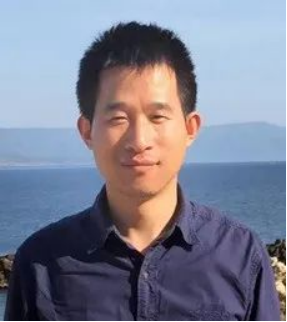
2023中国自动化大会(CAC2023)将于11月17日—19日在重庆悦来国际会议中心召开。本届大会由中国自动化学会主办,重庆邮电大学承办,大会以“自主可控强实体 新质生产创未来”为主题,聚焦自动化发展,拥抱智能新时代,共话产业新未来。大会将继续为全球自动化、信息与智能科学领域的专家学者和产业界的同仁,搭建展示创新成果、展望未来发展的高端学术平台,加强学科交叉融合,共促发展新机遇,引领科技新风向。
本届大会设置共计近40个专题论坛,其中“IEEE期刊主编论坛”将于2023年11月19日召开,论坛将邀请多位国内外自动化领域顶级期刊主编,共同探讨学科进展和论文发表经验。
期刊主编论坛

专题主席

高会军
中国自动化学会会士、常务理事、副秘书长
哈尔滨工业大学教授

伍冬睿
华中科技大学教授
专题报告

陈俊龙
欧洲科学院院士
中国自动化学会会士、副理事长
华南理工大学教授
报告题目:
宽度学习系统综述:算法,理论及应用
报告摘要:
In recent years, the appearance of the broad learning system (BLS) is poised to revolutionize conventional machine learnings. It represents a step toward building more efficient and effective methods that can be extended to a broader range of necessary research fields. In this report, a comprehensive overview of the BLS in data mining and neural networks will be presented, focusing on summarizing various BLS methods from the aspects of its algorithms, theories, applications, and future open research questions. First, we introduce the basic pattern of BLS manifestation, the universal approximation capability, and essence from the theoretical perspective. Furthermore, we focus on BLS’s various improvements based on the current state of the theoretical research, which further improves its flexibility, stability, and accuracy under general or specific conditions, including classification, regression, semi-supervised, and unsupervised tasks. Due to its remarkable efficiency, impressive generalization performance, and easy extendibility, BLS has been applied in different domains. Next, we illustrate BLS’s practical advances, such as computer vision, biomedical engineering, control, and natural language processing. Finally, the future open research problems and promising directions for BLSs are pointed out.

胡斌
北京理工大学教授
报告题目:
医学电子与精神障碍诊疗
报告摘要:
近年来全球精神健康问题日益凸显,据世界卫生组织统计:全世界有9.7亿人患有精神障碍,占全球总人口的13%。当前精神疾病诊断多以医生访谈和精神疾病诊断量表为主,缺乏客观量化诊断指标;治疗方式主要为药物治疗等方法,但是药物治疗存在副作用大等问题。以人工智能和大数据为代表的前沿信息技术的飞速发展,为精神疾病的诊疗提供了新契机,推动精神疾病诊疗由症状描述型向数据驱动型发生转变,提供了普适化,精准化和个性化的精神疾病诊疗分析技术,从而提高了精神疾病临床识别率和治疗有效率。本次报告将介绍医学电子领域对精神障碍诊疗的机遇与挑战。

刘德荣
中国自动化学会会士、理事
南方科技大学教授
报告题目:
如何发表高水平的SCI论文
报告摘要:
本讲座以Springer《Artificial Intelligence Review》为例,详实的介绍了发表高水平SCI论文的整个过程,从文章撰写到投稿和回复审稿意见,介绍了具体的方法措施,以避免失误从而提高论文的水平,加快论文的审稿和发表过程。对于一些作者在写作和投稿过程中的常见错误也给出了分析和建议。

宋永端
国际欧亚科学院院士
中国自动化学会会士、常务理事
重庆大学教授
报告题目:
如何增加稿件被高水平期刊录用的机会
报告摘要:
报告拟从国际期刊主编角度,分享如何通过认真修改打磨稿件,以增加其被送审,被给予修改乃至最终被录用的机会。

唐华锦
浙江大学教授
报告题目:
神经形态计算:基于脉冲神经网络的人工智能
报告摘要:
模拟大脑智能是计算机科学和人工智能领域长久以来的目标,本报告从介绍神经形态计算出发,结合神经科学发展,以大脑神经环路结构和神经脉冲计算原理为基础,重点阐述实现类脑的高能效与智能计算。脉冲神经网络是神经形态芯片的基础算法架构,是类脑智能的重要内容,基于脉冲信息表达的网络优化和深度学习问题是其关键挑战,本报告将介绍该领域的主要进展和展望。

王飞跃
中国自动化学会会士、监事长
中国科学院自动化研究所研究员
报告题目:
The TAO to DeSci for Intelligent Publication and Smart Journals
报告摘要:
In this report, we examine the transformative potential of TAO and DeSci in reinventing the realm of academic publication and journal management. And we propose a groundbreaking approach that integrates principles of TAO and DeSci to foster the evolution of Intelligent Publication and the creation of Smart Journals.
By incorporating TAO, we discuss a shift from traditional publishing paradigms towards an autonomous, efficient model, expediting the dissemination of scholarly work. We explore how DeSci principles can promote a more open, inclusive, and equitable scientific community by decentralizing control and decision-making processes, thereby reducing barriers to entry and encouraging wider participation in scholarly discourse.
We introduce the concept of Intelligent Publication, which utilises artificial intelligence and data-driven methodologies to enhance the quality, relevance, and accessibility of published content. In addition, we present our vision for Smart Journals, AI-driven platforms providing personalized, dynamic, and highly relevant content to readers, thereby revolutionizing how scientific literature is consumed and interacted with.
The report underscores the potential of TAO and DeSci in heralding a new era of academic publishing characterized by greater autonomy, decentralization, intelligence, and personalization.




 扫码下载APP
扫码下载APP

 科普中国APP
科普中国APP
 科普中国
科普中国
 科普中国
科普中国